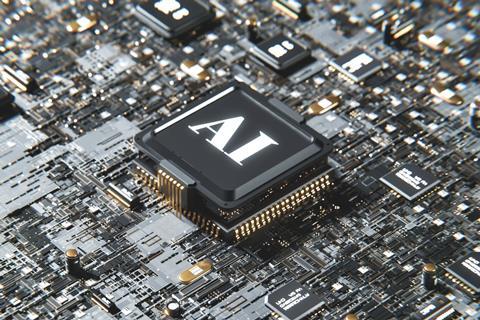As we work out how to integrate new technology into our food production supply chains, we must first make sure we are putting the right framework in place, warns BPC’s Kerry Maxwell.
At the International Poultry Council’s Annual Meeting in April, much of the conversation circled around new technology – how we can “leverage” it, what it might “unlock”, where the “opportunity” lies.
It’s the kind of language designed to excite – but I couldn’t help feeling like the odd one out. Honestly, I’m incredibly conflicted by AI, and, for the first time, I think I came across more as the sceptic than the optimist when chatting with attendees.
We discussed how AI has revolutionised supply chain management and logistics. In an industry focused on margins and scale, the efficiency gains AI promises are huge. From optimising delivery journeys to managing inventories, its ability to minimise operational challenges is impressive. And, yes, playing the ‘no-limits game’ – imagining what AI could do – is exciting. I love that game.
Are we falling for the hype?
But is there something about the hype surrounding AI that feels… over? It’s already everywhere, and trying to shoehorn it into our ‘brand’ feels more like chasing relevance than writing our own narrative. Meanwhile, the deeper conversations around the ethics, equity and environmental impact of AI seem to be missing.
As a sector that feeds the nation, we need to recentre our responsibilities – not just on innovation, but on people, place and planet. Otherwise, we’re playing the no-limits game with our own credibility at stake.
Food security is more than an output. The ability to feed ourselves is as much about integrity as it is efficiency. We can’t just ask: “What should AI do?” or “What or who does it serve?” when the conversation is about something far bigger than speed, or scale, or even purpose. This is an issue of accountability, and we need to tread extremely carefully.

The impact of AI in the ‘real world’
We may not be Google or Microsoft – for which AI usage has reportedly increased energy consumption and emissions by 20% and 30% respectively – but we still shape systems that affect landscapes and livelihoods. Our critics won’t care about our intentions if the outcomes cause harm.
I’m not fearful of AI, though I think it is fair to be. People were probably scared of computers a few decades ago, and tractors years before that. If there is anything I’m afraid of, it’s that using AI to solve problems may only create bigger ones if we don’t ask better questions from the outset.
My instinct tells me that we are trying to write AI into our future without stopping to right our approach. AI is based on material extraction, and it guzzles enough energy to power entire cities. It’s incredibly polluting to run. Can we really call ourselves a sustainable sector if we’re actively using AI without considering the consequences of doing so?
Artificial intelligence basically translates as ‘fake wisdom’. AI can process and predict, but it doesn’t understand. It doesn’t make decisions based on values unless we explicitly tell it what those values are. Even then, it’s only mimicking.
In the context of our sector, the contradictions become even sharper. AI may be efficient, but it doesn’t know what is enough. It can optimise supply chains, but it can’t define responsibility. It may be trained on data, but it isn’t trained on insight – and we all know how wrong, incomplete, or biased data can be.
AI may be clever enough to replicate a pattern, but it isn’t wise enough to imagine or reimagine. That is still our job. To truly understand what AI could be for our food supply chains, rather than simply what it is, we might need to start by asking better questions.




















